#or chekhov's rifle
Explore tagged Tumblr posts
Text
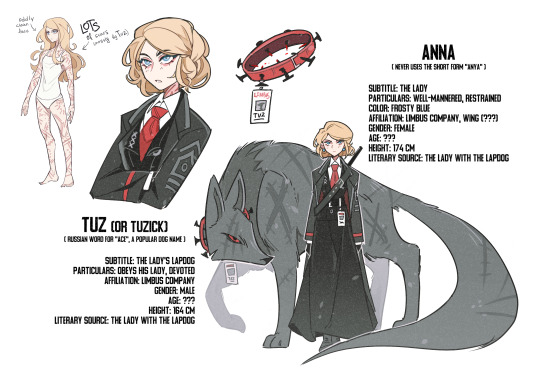

i am so normal you guys
#limbus company#original character#limbus company oc#the lady with the lapdog#i wonder if there is a concept of a chekhov's gun in eng culture#or chekhov's rifle#whatever
443 notes
·
View notes
Text
If a character in a Dickens novel merely passes someone by and there is so much as a single sentence dedicated to the encounter, rest assured that person will resurface (and be vital to the plot).
#Books#Reading#Charles Dickens#Dickensisms#Dickens fell asleep cradling Chekhov's gun in his arms the same way Ralphie Parker slept with his Red Ryder range model air rifle didn't he
1 note
·
View note
Text
On a scale of Mrs. Dalloway's flowers to the sword of Damocles, how Chekhov is your gun?
0 notes
Text
the key to creating a story that drives people insane according to tamsyn muir is apparently to hide an array of chekhov's rifles in the closet of every sentence, wrap it up in two layers of pop culture references and the lamest puns you've heard, and putting crack cocaine in the pages. and it worked, that mfer did it.
1K notes
·
View notes
Note
how do i get my character out of the corner i wrote myself in without a dues ex machina😭
How to Not Write Yourself Into a Corner (and How to Write Yourself Out of a Corner if You’re Already In One)

One of a writer’s WORST fears is writing themself into a corner.
It’s easy to write your characters into death-defying situations…but it’s not as easy to write the actual “defying death�� part.
Some writers, in their desperation to get their characters out of a bind, employ the use of a Deus Ex Machina, as mentioned by anon:
Deus Ex Machina: (Translates to "god from the machine") A plot device where a seemingly unsolvable situation is fixed by an out-of-the-blue occurrence. The term “deus ex machina” is a reference to Greek plays, when actors playing a god would literally be lowered into the scene via a machine to magically solve any situation.
Unfortunately, this plot device is often ridiculed by readers, cited as a hack-job solution for a writer out of ideas.
How do we avoid this situation, then? Here are some tips and tricks on how to not write yourself into a corner, and how to write yourself out of a corner if you’re already in one!
Note that these tips may not work for everyone, so make sure to use your own intuition as a writer— you know your story best.
1. NIP IT IN THE BUD— OUTLINES ARE KEY!
I’m sorry to all of you pantsers out there, but the key to prevent writing yourself into a corner is to already have an idea of how each scene is going to turn out; don't make a problem without making a solution! If you keep on top of your outline, you should have no worries about writing your characters into a situation they can't get out of it.
It may be easiest to jot down ideas about a couple of scenarios and then select the one that works best, especially when it comes to dire climax scenes that have a lot of moving parts.
Check out my posts below for more in-depth advice about outlining!
How to Outline
Plotting for Pansters and Pantsing for Plotters
This advice, although essential, does require a ton of foresight and time to plan…and if you’ve sought out this post, it may mean that it’s too late for preventative measures. The subsequent tips in this post are going to be for people who are already in the thick of it and need a way to save all of their writing progress.
2. FORESHADOWING IS YOUR FRIEND (AKA “CHEKHOV’S GUN YOUR WAY OUT OF THAT SHIT”)
Foreshadowing: A narrative device wherein a writer gives an advance hint of what is to come later in the story. It helps maintain believability while subverting expectations and making plot twists.
Chekhov’s Gun: A narrative device wherein a seemingly insignificant element or object in the story becomes useful later on. Sometimes used synonymously with foreshadowing, but usually refers to a specific object.
Examples of Foreshadowing/Chekhov’s guns in media:
The 1981 Quarter (Or Extra Life Quarter) in Ready Player One
“Don’t Cross the Streams” in Ghostbusters (1984)
Winchester Rifle Hanging over the Bar in Shaun of the Dead (2004)
The Rita Hayworth Poster in The Shawshank Redemption (1994)
The Water Bottle in Bullet Train (2022)
In my opinion, a Chekhov’s Gun is the more refined twin of the deus ex machina; although it may seem like it comes out of nowhere, observant readers or those who go back into the story will realize that this event was set up from the beginning.
Foreshadowing is the key to turning a deus ex machina into a Chekhov’s Gun. It’s spreading breadcrumbs to maintain believability even when unbelievable things happen.
My advice: plant a line here and there referring to the object/element that will get you out of the corner.
These lines can be about a healing potion that a character carries around to save them when they’re at the brink of death, the fact that the city they’re fighting in often suffers from sinkholes, or that a character has a seemingly useless skill.
However, haphazardly inserting foreshadowing into your story may come across as heavy-handed; make sure it aligns with the narrative beats. Particularly big Chekhov’s Guns, especially ones that “save the day," may require multiple foreshadowing elements.
It can take a lot of work to incorporate the foreshadowing smoothly, so make sure it actually saves you time in comparison to rewriting the whole scenario/plot point.
3. TAKE A BREAK
Sometimes, the solution to your problem may not come to mind because you’re too immersed into the writing process and not thinking of the bigger picture. Or maybe it might just be good old-fashioned writer’s block. Take a step back, reassess, and return with the scene properly re-evaluated. Maybe start a new book or TV show to get some inspiration, or check out one of my posts below!
How to Overcome Writer’s Block
How to Get Inspired to Write and Regain Creativity
4. ASK FOR HELP
Sometimes, it might be best to have another set of eyes on your story! A situation that may seem unsolvable to you may have an obvious solution to a writing buddy.
5. KNOW THAT SOMETIMES RE-WRITING IS NECESSARY

I know this sounds horrible. It’s something that I wouldn’t wish upon any writer.
Sometimes, however, no amount of foreshadowing can get your characters out of the debacle they’ve put themselves in. Either that, or the work that it would take to insert the foreshadowing would be more than it’d take to rewrite the scene or the plot point.
My suggestion would be to search for the last place that you didn't feel lost, and then cut out everything after that.
(NEVER DELETE MAJOR CHUNKS OF YOUR WRITING! ALWAYS CUT IT AND SAVE IT IN A SCRAP DOC—IT COULD COME IN HANDY LATER!)
Then, take the time to outline the scenario and figure out the solution to your problem beforehand. It will suck, but trust me, it'll be worth it in the end.
HOPE THIS HELPED, AND HAPPY WRITING!
#writing#writing tips#writing advice#writing help#writeblr#writing prompts#writing tools#booklr#creative writing#writers
1K notes
·
View notes
Text
Some Literary Terms & Devices

Literary devices and terms - are the techniques and elements that writers use to create narrative literature, poetry, speeches, or any other form of writing.
Anadiplosis - a figure of speech in which a word or group of words located at the end of one clause or sentence is repeated at or near the beginning of the following clause or sentence. This line from the novelist Henry James is an example of anadiplosis: "Our doubt is our passion, and our passion is our task."
Bildungsroman - a genre of novel that shows a young protagonist's journey from childhood to adulthood (or immaturity to maturity), with a focus on the trials and misfortunes that affect the character's growth.
Chiasmus - a figure of speech in which the grammar of one phrase is inverted in the following phrase, such that two key concepts from the original phrase reappear in the second phrase in inverted order. The sentence "She has all my love; my heart belongs to her," is an example of chiasmus.
Diacope - a figure of speech in which a word or phrase is repeated with a small number of intervening words. The first line of Anna Karenina by Leo Tolstoy, "Happy families are all alike; every unhappy family is unhappy in its own way," is an example of diacope.
Epizeuxis - a figure of speech in which a word or phrase is repeated in immediate succession, with no intervening words. In the play Hamlet, when Hamlet responds to a question about what he's reading by saying "Words, words, words," that's an example of epizeuxis.
Foreshadowing - a literary device in which authors hint at plot developments that don't actually occur until later in the story. Foreshadowing can be achieved directly or indirectly, by making explicit statements or leaving subtle clues about what will happen later in the text. The Russian author Anton Chekhov summarized foreshadowing when he wrote, "If you say in the first chapter that there is a rifle hanging on the wall, in the second or third chapter it absolutely must go off." The description of the gun on the wall, in other words, should foreshadow its later use.
Hubris - excessive pride or overconfidence, which drives a person to overstep limits in a way that leads to their downfall. In Greek mythology, the legend of Icarus involves an iconic case of hubris: Icarus is given artificial wings made of wax and feathers so that he can fly (a superhuman feat), but he ignores his father's warnings and flies too close to the sun, melting his wings and drowning in the ocean.
Irony - a literary device or event in which how things seem to be is in fact very different from how they actually are. If this seems like a loose definition, don't worry—it is. Irony is a broad term that encompasses three different types of irony, each with their own specific definition: verbal irony, dramatic irony, and situational irony. Most of the time when people use the word irony, they're actually referring to one of these specific types of irony.
Juxtaposition - occurs when an author places two things side by side as a way of highlighting their differences. Ideas, images, characters, and actions are all things that can be juxtaposed with one another. For example, it's a common plot device in fairy tales such as Cinderella to juxtapose the good-natured main character with a cruel step-sibling. The differences between the characters, as well as their close relation to one another, serve to highlight the main character's good qualities.
Kenning - a figure of speech in which two words are combined in order to form a poetic expression that refers to a person or a thing. For example, "whale-road" is a kenning for the sea. Kennings are most commonly found in Old Norse and Old English poetry.
Litotes - a figure of speech and a form of understatement in which a sentiment is expressed ironically by negating its contrary. For example, saying "It's not the best weather today" during a hurricane would be an example of litotes, implying through ironic understatement that the weather is, in fact, horrible.
Metonymy - a type of figurative language in which an object or concept is referred to not by its own name, but instead by the name of something closely associated with it. For example, in "Wall Street prefers lower taxes," the New York City street that was the original home of the New York Stock Exchange stands in for (or is a "metonym" for) the entire American financial industry.
Narrative - an account of connected events. Two writers describing the same set of events might craft very different narratives, depending on how they use different narrative elements, such as tone or point of view. For example, an account of the American Civil War written from the perspective of a white slaveowner would make for a very different narrative than if it were written from the perspective of a historian, or a former slave.
Onomatopoeia - a figure of speech in which words evoke the actual sound of the thing they refer to or describe. The “boom” of a firework exploding, the “tick tock” of a clock, and the “ding dong” of a doorbell are all examples of onomatopoeia.
Polyptoton - a figure of speech that involves the repetition of words derived from the same root (such as "blood" and "bleed"). For instance, the question, "Who shall watch the watchmen?" is an example of polyptoton because it includes both "watch" and "watchmen."
Quatrain - a four-line stanza of poetry. It can be a single four-line stanza, meaning that it is a stand-alone poem of four lines, or it can be a four-line stanza that makes up part of a longer poem.
Red herring - a piece of information in a story that distracts readers from an important truth, or leads them to mistakenly expect a particular outcome. Most often, the term red herring is used to refer to a "false clue"—a piece of evidence that misleads readers to believe that a crime (or other action) was committed by someone other than the actual culprit.
Sibilance - a figure of speech in which a hissing sound is created within a group of words through the repetition of "s" sounds. An example of sibilance is: "Sadly, Sam sold seven venomous serpents to Sally and Cyrus in San Francisco."
Theme - a universal idea, lesson, or message explored throughout a work of literature. One key characteristic of literary themes is their universality, which is to say that themes are ideas that not only apply to the specific characters and events of a book or play, but also express broader truths about human experience that readers can apply to their own lives. For instance, John Steinbeck's The Grapes of Wrath (about a family of tenant farmers who are displaced from their land in Oklahoma) is a book whose themes might be said to include the inhumanity of capitalism, as well as the vitality and necessity of family and friendship.
Understatement - a figure of speech in which something is expressed less strongly than would be expected, or in which something is presented as being smaller, worse, or lesser than it really is. Typically, understatement is used to call attention to the very quality it pretends to downplay. For instance, if you had just eaten the most delicious meal of your life and licked the plate clean, you might jokingly tell the chef that "It was edible," making use of understatement to humorously express how much you appreciated the meal.
Verbal irony - occurs when the literal meaning of what someone says is different from—and often opposite to—what they actually mean. When there's a hurricane raging outside and someone remarks "what lovely weather we're having," this is an example of verbal irony.
Zeugma - a figure of speech in which one "governing" word or phrase modifies two distinct parts of a sentence. Often, the governing word will mean something different when applied to each part, as in the sentence, "He took his coat and his vacation." The verb "to take" makes sense with and governs both "coat" and "vacation," but is appropriate to each in a different way.
Source ⚜ More: Writing Notes & References
#literary terms#poetry#writeblr#writing reference#spilled ink#dark academia#studyblr#light academia#literature#writers on tumblr#writing prompt#langblr#poets on tumblr#creative writing#writing inspiration#writing inspo#writing ideas#nicholas roerich#art#book#booklr#writing resources
159 notes
·
View notes
Text
Seeing that Ben is going to get a bigger focus in Season 4 (yay!) has really reminded me of some of the theories around in Season 1. More specifically, the Chekhov’s Gun theory.
For anyone who doesn’t know, in 1x2, Ben is reading The Bet by Anton Chekhov.

This was where the theory split into two. The Bet is a short story that discussed which was better: the death penalty or life in prison. This can sort of relate to Ben as a character due to the fact that he is dead.
The other side of this theory didn’t specifically focus on the story, but more on the writer, Chekhov. One of his biggest theories was called Chekhov’s Gun and this was the idea that you shouldn’t reveal details unless they’re going to be important later:
“If you say in the first chapter that there is a rifle hanging on a wall, in the second or third chapter it absolutely must go off. If it’s not going to be fired, it shouldn’t be hanging there.”
Being the second episode of the show, Ben didn’t really have a purpose. He was just there. The plot (unfortunately) wouldn’t really change if he wasn’t there. So this theory basically stated that Ben was going to be more important than the writers were letting him on to be. This was true with the Season 1 finale, but isn’t this also true with Season 4?
287 notes
·
View notes
Text


chekhov's love confession rifle, never fired
(he didn't make it back)
521 notes
·
View notes
Note
One of my favorite accounts on the overnet! Every post is like a chekhov's plasma rifle and I can't wait for you to meet your own mistress <3 (P.S. You should get an affini roommate to help handle other things while you write your manifesto. I think it'll be really helpful.)
This account is NOT for bloomists!!! I’m a proud Terran feralist fighting for our noble cause!
I don’t need a writing partner and I only have fantasized about being accosted by vines that ONE time, okay! So back off!
26 notes
·
View notes
Text
Chekhovs Blessed Gun
So how many angelic weapons does IMP have right now?
Striker dropped the blessed rifle in Harvest Moon festival and he also left the rope tied around stolas when moxxie and millie find him.
Also Blitzo might have grabbed that amulet in Weeaboo-boo
These are for sure coming back, I could see as early as Sinsmas, them using something against Andy, or I could see them holding off till later.
What I think (hope) might happen though - I think an imp is going to kill a goetia or a sin, and that will be what fully sets off the imp revolution. I hope it's a sin, because that would be truly turning hell on it's head if an imp manages to kill a sin.
I could see it being blitz doing the kill, but here's my wild card option, what if Fizz kills Mammon in self defence? What...happens then? If imps see a sin die from a quick shot to the head by an untrained shooter?
Anyways, I've been thinking a lot about the very literal Chekhov's gun that they've set up, Strikers gonna have to learn to not leave a bunch of angelic weapons around lol.
#stolas#blitzø#fizzarolli#helluva boss mammon#striker#andrealphus#helluva boss asmodeus#stolitz#sinsmas
35 notes
·
View notes
Text
"You are aware this kind of weapon can kill--" "…demon royalty?"

I still can't help but wonder if this is setting up a Chekhov's gun trope type deal, because, unless I've missed something, it is still very much possible that I.M.P has Striker's blessed weapon from s1 e5.
Plus, I'm pretty confident that Striker did not retrieve the weapon again when he made a dash to the window for a few reasons.
1: The trajectory of the weapon after Moxxie got slammed in the face by the door makes it pretty clear that it would've landed nowhere near the quickest path to the window. (Which is the path Striker ended up taking. I do also admit that this is a tad bit of speculation on my part, but you get the point I'm making.)

2: Striker's hands are completely empty when he starts running here, and when Striker is at the window, we can see that Striker still does not have the weapon in his hands, making it impossible for Striker to have retrieved the weapon at any point during this, unless the weapon somehow landed outside after Moxxie got hit by the door, but I heavily doubt the weapon landed outside. Not to mention Striker was most likely grabbing onto the window frame with both hands as well.


3: Unless I've missed something here, we do not see the weapon from s1 e5 in s2 e4 at all, plus, I'm pretty sure it's not even mentioned at all as well, adding to the very high possibility that Striker did not retrieve that weapon during his escape in s1 e5.

Another thing I want to mention is that the sniper rifle was shot only once by Moxxie, and after googling it, while it does vary on model to model, they typically have a magazine capacity of more than 1 round, meaning that the weapon most likely still has ammo loaded into it.
And all of this begs the question, does I.M.P have that sniper rifle in question? The answer being that we don't know at this point in time, it's very possible that they do have the weapon, but at the same time it's also very possible that they don't have the weapon, considering it's never been mentioned or seen again after s1 e5, so unless it gets mentioned again I guess we won't have an answer to this question.
21 notes
·
View notes
Text


The "Chekhov's gun" principle is so widely recognized that Pete's failure to fire his rifle in this episode feels uniquely resonant. The viewer is suspended, waiting to see when and why the gun will be fired ("because it HAS TO HAPPEN"). And then it never happens. It can't happen. And we come to see that it can't happen specifically because it is Pete's gun — Pete the inadequate ad-man and failed breadwinner, who is never original or determined enough to "fire his own guns" by making meaningful, impactful choices at work or at home. Pete who only "pulls the trigger" and catches his prey in his fantasies.

#enamored with the writing of this show#so refreshing#im crossing my fingers for a Sterling Cooper hunting trip episode. or just any kind of actual hunting scene#spaceman posts#mad men#pete campbell#just started s2 so also hoping the gun will make an appearance again#spaceman thoughts
15 notes
·
View notes
Text
i wanna make a dndads thingy for the 'Oh Yes, They Both Reached For The Gun' edit trend on tiktok . but i Dont Wanna Draw That Many Guns
i do have a mental list of a good couple of gun-related instances during seasons 1, 2 and 3;
- darryl during forknights
- glenn shooting several birds
- lark aiming thru normal at dood
- grant sniping terry jr
- link with the human gun
- darryl shooting chekhov's gun beside willy
- young hero at the training range
- terry jr shooting at the teens
- glenn grabbing the gun from mercedes
- francis shooting shane's leg off
- kimonwan with the rifle
- tony getting shot through the chest
- pedro shooting the mafia man in the car
- hermie getting shot
#who wanna collab w me on it /hj#<- hj cause i do actually wanna do this but again . thats so many guns to draw#dndads#dungeons and daddies#dndaddies
28 notes
·
View notes
Text
A Missed Opportunity in The Acolyte, Episode 6 "Teach / Corrupt"
(spoilers for The Acolyte)
Those who read my blog here know that I'm a big fan of The Acolyte; I see it as part of "Grown Up Star Wars": a kind of thematic "trilogy" of Star Wars shows that dare to explore deeper topics in this universe, which other shows and movies only touch on or hint at.
But speaking as a writer, no work of art is beyond critique. And there's one missed opportunity in Episode 6 that I think requires special mention.
Simply put, Chekhov's Gun was shown, but never fired.
Chekhov's Gun
If you're new to writing, Chekhov's Gun is a principle named in honour of the prolific 19th-Century author and playwright Anton Chekhov, who gave the following advice:
Remove everything that has no relevance to the story. If you say in the first chapter that there is a rifle hanging on the wall, in the second or third chapter it absolutely must go off. If it's not going to be fired, it shouldn't be hanging there.
Osha Has a Tattoo...
In The Acolyte, Episode 2 "Revenge / Justice", Sol and Osha are reunited after being apart for six years, ever since Osha left the Jedi Order. In that time, she's become a "Meknek" (a mechanic that repairs space ships on their outer hull).
Sol notices that she got a tattoo on her arm, and they have the following exchange:

SOL: "What is that?" (he points) OSHA: "Oh, this is a PIP droid. I'm trying to sync him to your ship so I can get some fuel levels and some vitals, and-- SOL: "I mean, what is that?" (he points to the tattoo) OSHA: "Oh, uh... I got this in CorpSec. It was a crazy night with some of my crew. And you hate it. SOL: "It doesn't matter what I like..."
But what Sol likes does matter, especially to Osha, because Sol prides himself on being a father-figure. He asked the question in part because it's clear he disapproves, and Osha feels the weight of that disapproval.
...That Mae Doesn't Have
Now we come to Episode 6 "Teach / Corrupt," where Mae takes on Osha's identity. Her plan is a little light on the specifics (as Mae's plans usually are, since her defining fatal flaw is her impulsivity), but she has two main goals:
Find a way to deprogram her sister's "brainwashing", which requires first knowing what story Sol has fed her so that she knows how to undermine his credibility in Osha's eyes;
To punish Sol... somehow. Maybe by killing him? But that might interfere with Goal 1...
Just as Mae is figuring out this dilemma, mechanical problems arise on the ship. To keep up her cover, she tries to repair the ship, except that in doing so, both PIP and Basil figure out that she's an imposter, and act together to try and get her caught.
She deals with PIP by wiping the droid's memory, but not before he sprays her in the face with something oily and gross:

Basil, meanwhile, gets away. She tries to hunt him, but Sol calls her for a conversation, interrupting her search.
So the scene comes to its climax when she has a heart-to-heart with Sol, and Mae realises that he didn't tell Osha the whole story of what happened on Brendok... what' more, Mae intuits that Sol probably didn't tell anybody the whole story, and that the Jedi Order is probably as much in the dark about it as Osha herself.
That means that Sol is vulnerable to having his story exposed.
Seizing on this opportunity to hurt Sol, she tries to contact the Republic, but he stuns her into unconsciousness; Basil, it seems, got through to Sol and revealed that he's been talking to an imposter.
How the Scene Should Have Played Out
I don't like this resolution because it misses the obvious opportunity set up in Episode 2.
Instead, here's how I think it should have ended:
The beginning plays out the same: Mae is called away to repair the ship, Basil and PIP figure out she's an imposter and try to thwart her.
But in this version, Mae would have successfully subdued Basil.
Meanwhile, PIP would spray Mae with the gross oil, but instead of hitting her in the face, it hits her on her jacket, staining it.
Feeling disgusted by the oily jacket, Mae discards it, and is now wearing only her tank top underneath, which exposes her bare arms sans tattoo.
When she speaks with Sol, her body is angled in such a way that Sol coincidentally doesn't see her right arm, until it's almost too late.
At the last second, Sol notices the missing tattoo, infers that this is Mae and not Osha, and stuns her.
The end result is the same, but it lets the story offer a payoff to what it set up several episodes ago. And I think that's a more satisfying resolution.
#star wars#the acolyte#writing#mae aniseya#osha aniseya#spoilers#character analysis#storytelling#master sol#grown up Star Wars
17 notes
·
View notes
Text
6/30 The road to hell
(Previous) | (Index) | (Next)
⛬
We return to the movie equivalent of an incompletely-assembled Ikea PAX / BERGSBO wardrobe surrounded by chips of particle board and eight thousand extra screws, Prometheus.
If that analogy made sense to anybody, congratulations! You too are succumbing to The Madness.
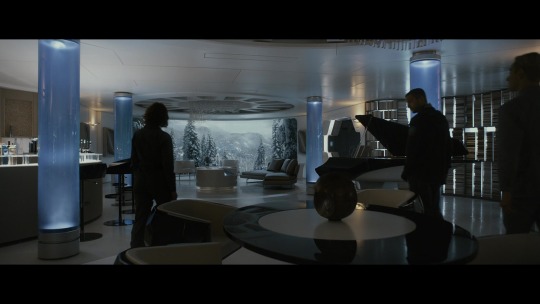
Content warnings for terrible archaeology, terrible chemistry, and blunt force trauma to the audience with a piece of exposition.
Increasingly extensive alt-text ramblings include the logistics of securing items in moving craft, linguistics, atmospheric science, colorblind-friendly diagram design, swearing about orology, and cursing the crew for their fictional crimes against archaeology.
Many on Tumblr are familiar with Chekhov’s Gun, a piece of writing advice that calls for economy of storytelling: if you mention a loaded gun in your story, it should go off at some point. Sergius Shchukin phrased it this way: “Remove everything that has no relevance to the story. If you say in the first act that there is a rifle hanging on the wall, in the second or third act it absolutely must go off. If it's not going to be fired, it shouldn't be hanging there."
So Prometheus takes the rifle down off the wall and smashes you over the head with it, just to make sure you saw it.
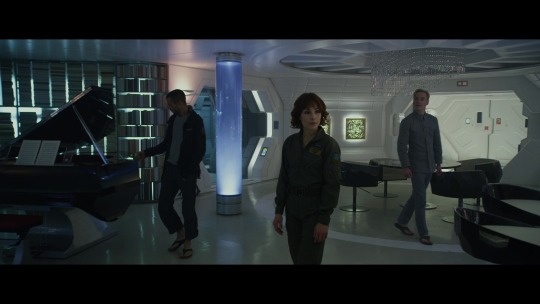
CH: “Wow, nice place.” D: “It's actually a separate module with its own self-contained life support. Air, food. Anything Miss Vickers would need to survive a hostile environment.” CH: “Okay, so she lives on a lifeboat.” MV: “Yes. I do. I like to minimize risk.”
Gee. I wonder if Vickers’ lifeboat living quarters will become relevant later.
Then, Chekhov’s rifle hits us with its next flurry of blows.
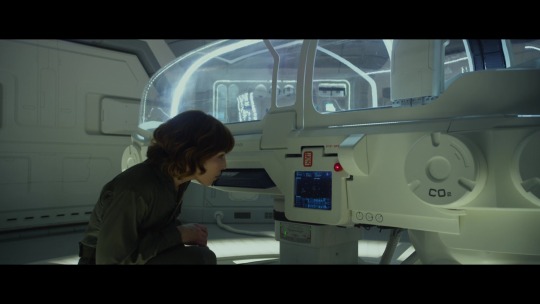
“Charlie, look. It's a Pauling Med-Pod. They only made a dozen of these.”
Gee. I wonder if the Pauling Med-Pod–-yes of course it’s going to be relevant later
You want a movie where a literal Chekhov’s gun gets fired off, along with Chekov’s crossword puzzle, Chekov’s ketchup packet, Chekhov’s swan, and Chekhov’s farmer’s mum, Chekhov’s everything all weaving back together again in a beautiful symphony of hilarious violence? Watch Hot Fuzz! Do it! Just watch Hot Fuzz! Not Prometheus!
youtube
I have said it before and I say it now, this movie is TERRIBLE at providing the audience with plot-relevant information. It hits you like head trauma. It bellows at you like Hans Zimmer has his entire orchestra hiding behind your chair, ready to let loose with an Inception Noise.
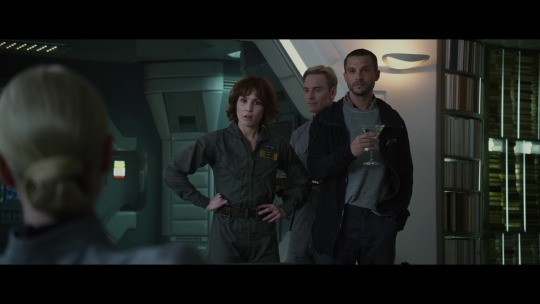
Vickers is here to make David mix drinks and to be a Corpo Ice Queen who demands that the team not make any direct contact with any alien life they find while they’re here. She doesn’t think they will, though. She thinks Weyland was delusional. But she’s the one in charge of the company money, so she’s the boss here.
Which begs the question of why she’s here at all, rather than back on Earth. This is actually a plot point, but because it’s not explicitly called out like the LIFEBOAT with the PAULING MED-POD, and everyone else has acted like loons anyway, it does not stand out. It just seems like another dollop of irrational behavior in the unpalatable stew of these characters.
However, Vicker’s demand that no direct contact be made? Very sensible! In fact, this was the point in the movie where I distinctly remember thinking in the theater “wait, they don’t have a first contact protocol already?”
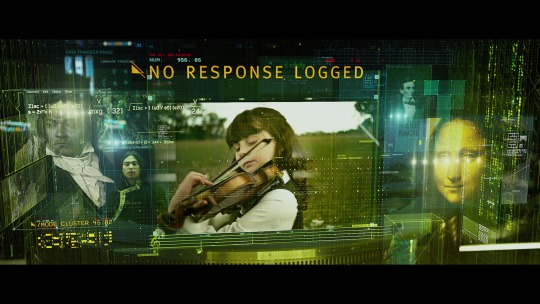
Like, Vickers doesn’t think that anything’s going to happen, but there’s enough of a chance that she’s giving orders not to engage. The sum total of their formal first contact attempt was yeeting a cultural message packet at the planet while in-transit to see if they got any response. The only one who appears to have been preparing was David–he basically spent the last two years learning comparative linguistics, with the aim of acting as a translator, should they get that far. That’s a sound choice, though its actual implementation is going to leave me incensed later.
But that still doesn’t answer the question of what they’re planning to do. Weyland certainly believed that they were going to meet aliens here. He’s arrogant enough to have demanded this whole project happen, and he didn’t have anything to say about what should be said if they made contact without him?
This is, possibly, a plot point. But everything else that happens around this in the next five minutes is pure, howling madness.
Because they’re immediately descending into the atmosphere of this alien world.
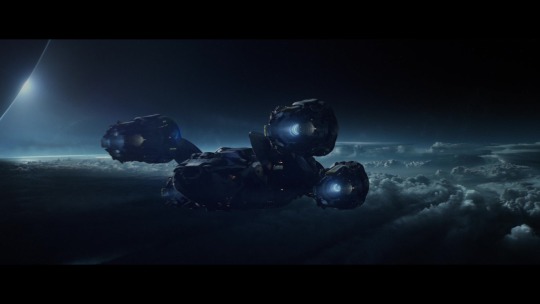
This is too fast. In Alien, they landed on-planet to check out a possible distress signal, and it was a goddamn pain in their collective ass that they were only doing out of legal responsibility. In Aliens, they were a bunch of hopped-up marines ready to go shoot bugs.
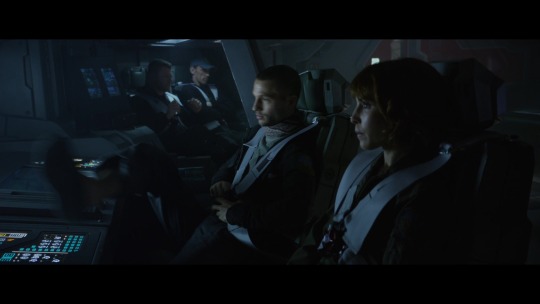
These are, again, scientists. The team leads are archaeologists! Aerial archaeology is a thriving field today that’s only going to get more useful as technology improves! There is no sense that they’ve done any scans, they don’t even know what the atmosphere is made out of, something we, right now, can already determine about exoplanets. Really! We can!
We are explicitly told, in fact, that all this is happening within the same day as everyone waking up. The events of this movie appear to happen over two days, maybe three at the max.
And now, Spider yells at cloud. Or rather, the atmosphere.
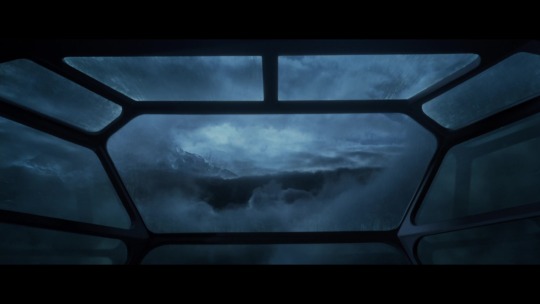
The movie claims that if you spend two minutes on the surface without an oxygen supply, you’re dead. Why? Atmospheric CO₂ is over 3%.
Now, 3% CO₂ is not a fun time, and you will definitely experience weird physical and cognitive effects. But if you hang out in 3-5% CO₂, you’re going to be pretty okay for anywhere from four hours to over a month.
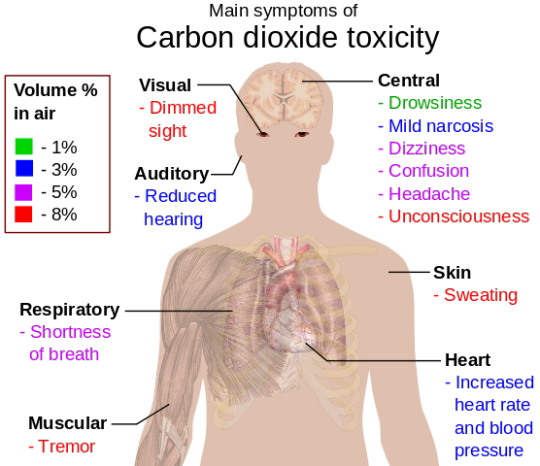
What I've heard consistently is speculation that the movie meant carbon monoxide levels at 3%, which, yeah, that'll kill ya. In fact 2-3 breaths of 1.28% CO makes people pass out and die within under three minutes. 0.01% CO is enough to result in headaches and memory problems, as one redditor demonstrated to the internet back in 2015.
But no. For whatever reason, the movie script says “CO₂”. Consistently.
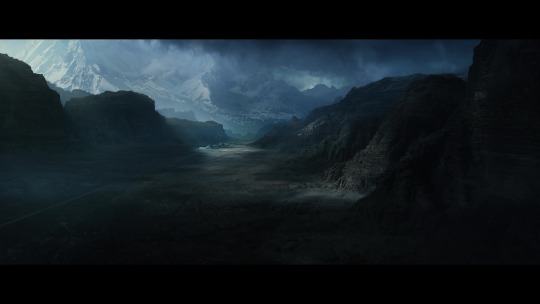
And now, we get to the bit that had me screeching under my breath in the theater. Most people who saw Prometheus lost their sympathy for the human characters about 5-20 minutes after this point. I was ahead of the curve. I hated these characters before it was cool. Because they see a structure. They see what looks like roads.
Holloway, who I remind you all, claims to be an archaeologist, demands they set the ship down on one of those roads.
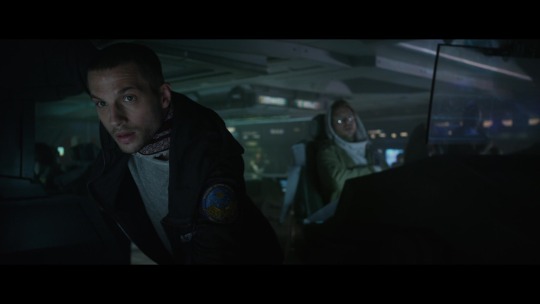
Let me tell you all a story. A few years before this movie first blighted me, I signed up for an archaeological field course. The university offering it didn’t have a dig permit lined up for the year I went, but their campus was in an area that had seen continuous human habitation for at least 15,000 years. They scouted out a bit of lawn, we cut the turf, and started digging.
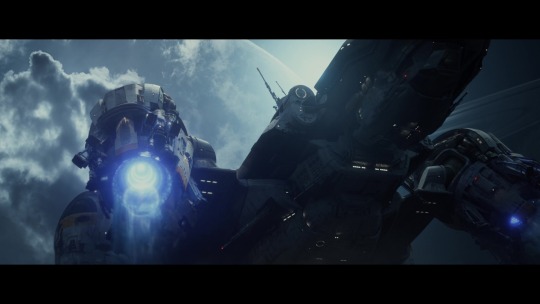
A week or two into the dig, we realized that the top layers were probably modern infill, dirt that had been trucked in from somewhere and completely jumbled. We started hacking away at it with mattocks to get down to the actual archaeology, which was delayed by a day or two when I struck 1940s asphalt.
Like, literally struck it with my mattock. It felt like biting down on aluminum foil, but spread out over my hands to my shoulders. The professors rented a small mechanical digger to tear up the old car park, and also some of the plywood on the sides of our trench by accident. I have never seen a bunch of professors so gleeful about being turned loose on heavy machinery.
But finally, we got to what we were there for. A bunch of 13th century houses, and a Roman road.
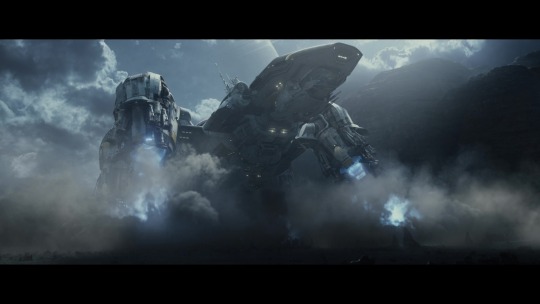
I remember we made sure there was photo documentation that captured every fucking pebble on the medieval surface of that road, before we dug in. We were encouraged to sketch it, too. We took precise GPS coordinates of where the edge of the road started. We sifted through the road surface as we dug it up, finding dozens of tiny artifacts, because centuries of people had tossed little bits of trash onto the road, lost things out of their pockets and pouches, all the random little events that might happen on a stretch of road two minutes' walk from the parish church.
I remember one student found the metal tag off of a horse’s bridle, that would’ve been used to identify it with its owner’s mark. Another found an 800 year old silver coin, tarnished on one side and perfectly, shiningly pristine on the other. It was beautiful.
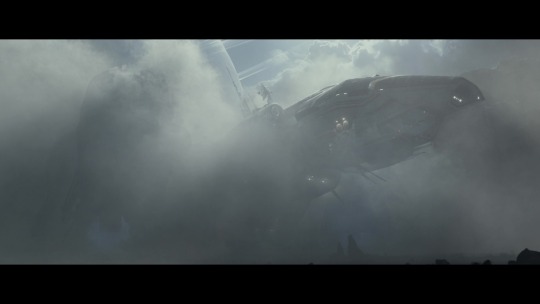
And over and over, we were told: “A road is a find.” A road itself is history. A road is a place shaped by human hands, where humans have lived their lives. We can learn a lot from roads.
And that was what I was whispering at the screen in the theater, increasingly incensed. “A road is a find. A road is a find. A road is a find!!”
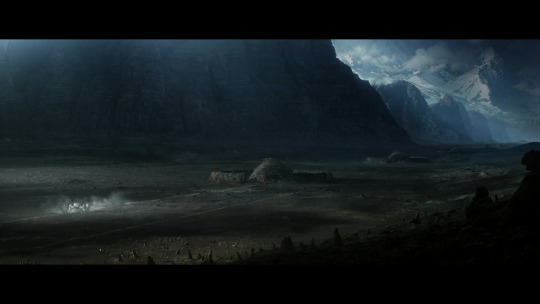
I was ready to reach through the screen and strangle that motherfucker Holloway from this moment on. The movie had lost me fully. Not because of this moment in isolation–if the rest of it had been consistently competent, I would have sighed and done my best to hold onto suspension of disbelief. But the drip feed of problem after problem had taken me from open and interested in the movie to actively spiteful in about 30 minutes or less.
So, fine. The movie seemed determined to make me watch a bunch of unprepared morons stumble to their deaths. Usually, this sort of movie doesn’t appeal to me. I don’t find much use for the kind of movie where you’re supposed to feel antipathy toward the main cast, as a free pass to watch them suffer. It’s why I still haven’t seen Alien Covenant. But I had been unexpectedly ambushed by just such a movie, and I was rooting for whatever horrors awaited them.
⛬
(Previous) | (Index) | (Next)
⛬
Citations for alt text rambling:
1. https://knowyourmeme.com/memes/bane-vs-pink-guy--2
2. https://en.wikipedia.org/wiki/Chinese_bronze_inscriptions
3. https://en.wikipedia.org/wiki/Cumulonimbus_incus
4. https://en.wikipedia.org/wiki/K%C3%A1rm%C3%A1n_line
5. https://en.wikipedia.org/wiki/Mount_Everest
6. https://en.wikipedia.org/wiki/Olympus_Mons
#Prometheus 2012#Prometheus (2012)#hot tip for anyone exploring alien ruins: do none of this#I am still somewhat perplexed that this got me so angry#I am a parody of myself sometimes
42 notes
·
View notes
Text
On "The Lost Cause" by Cory Doctorow
tl;dr - The Lost Cause is an worthwhile read that provides a feeling of hope for the future. As with many novels by Cory Doctorow, it takes place in the near future and showcases one possible future.
A future where humanity is taking the drastic actions needed to manage the fallout of the climate crisis. But also a future where humanity is dealing with the backlash from the older crowd that fears change and the plutocrats that fund them.
The story is told from the point of view of Brooks Palazzo, a young adult living in Burbank California thirty years from now. The Green New Deal has passed, and he is part of the "first generation that doesn’t fear the future". He wants to make a difference in the world by joining the Blue Helmets AmeriCorps and helping to rebuild the lower half of San Juan Capistrano a mile inland.
Not everything is all rainbows and roses, however. Brook's grandfather and his Maga pals aren't huge fans of the changing world though. Neither are the plutocrats that lost out due to the GND...
You can get a copy of the ebook or audiobook directly from the author here. You can also buy the audiobook from libro.fm or get a physical copy from bookshop.org as a hardcover now or pre-order the paperback. You can also check and see if your local library has a copy.
This is going to be less of a review and more of an admiration for a specific trope that is masterfully used. Due to the nature of the trope, there will be spoilers, including major plot points near the climax of the novel. If you want to go in blind, stop reading now.
"If you say in the first chapter that there is a rifle hanging on the wall, in the second or third chapter it absolutely must go off. If it's not going to be fired, it shouldn't be hanging there." — Anton Chekhov (From S. Shchukin, Memoirs. 1911.)
So, Chekhov's Gun. It's a guideline when writing narrative fiction that is commonly interpreted as: every element in a story should be needed, and anything that isn't needed should be removed. You could probably also think of it as a form of foreshadowing, but I'm not an author nor an authority on narrative fiction.
Anyway, spoiler alert - Brooks' grandfather dies during chapter one of the novel. As is common when a family member dies, the living have the chore of sorting through a lifetime's worth of items. As Brooks is the sole remaining person in his family, that task falls to him.
This leads to the below setup for the trope:
I felt around the edge and found a length of floorboard that wasn’t stuck down, and beneath it, a heavy nylon loop. I hauled on it and a square of floor lifted straight up, revealing Gramps’s secret. He’d jackhammered away a neat square of foundation slab, dug down about four feet, and poured a concrete vault, which he’d filled with: three AR-15s; forty boxes of ammo; a bag of expired high-strength antibiotics; a wilderness survival kit identical to the one he’d given me for my first Scout sleepout, including the hatchet my Scoutmaster had confiscated before we got on the bus; topographical maps of LA County; and, wrapped in oilcloth, a wooden box like you’d keep poker chips in, but this was full of krugerrands, heavy and glinting dully, dated mostly from the first and second decades of this century.
As guns are now illegal, this leads to Brooks stashing the guns, ammo, and gold in the hills of California by page 80. They get mentioned a few times throughout the novel, reminding you of their existence, but don't become really relevant to the plot until right before the climax.
A part of the story that almost feels like it could be the climax.
A group of Maga terrorists have taken Brooks' friends hostage. Brooks decides that in order to save his friends he has to go into the California hills and get the guns.
This, turns out, was not necessary. In fact, it's revealed later that the likeliest outcome of trying to perform an armed rescue would have been his death.
So, it comes to pass that the guns were introduced in the first act, and were subsequently not fired in the third.
The scene that completes the arc of trope:
That was what my grandfather had raised me to expect: a final confrontation, an all-out war, a battle for the future of the human race and its planet. That was what he was planning for, and right up until that moment, as I cleaned off his guns and hid them in the construction waste, I had never really considered the possibility that he’d been wrong. I’d thought there’d be a war with two sides: Gramps’s side and mine. I’d never thought that the real war would be between the people who refused to go to war and the fools who thought they could shoot climate change in the face.
So we have the setup, the implication that the guns will be used later in the novel. Only, they don't get used. They're practically useless, and almost actively harmful. But, given the themes and messaging of the book, the guns being useless is the only possible outcome. The subversion of this trope[0] drives the point home. Having some kind of final showdown isn't the message. Individuals storming the building with guns to to save the day would fly counter to the message of collective action being the way we move forward.
The message I took from the book was that building shelter for refugees is the way forward, even if doing that gets you arrested.
That feeding the hungry is the way forward, even if you get fined for it.
That taking care of people, even if those people were previously pointing a gun at you, is the way forward. (note: ensuring that they don't have access to their guns anymore is wise.)
The only way forward is to build the systems of mutual aid now, even if building those systems will be fraught with adversity and challenges.
No matter what happens, we will always be building the future in the shadow of the present. Only with collective action can we move forward, and only if we take care of each other.
[0] so, I'm not entirely convinced that this is really a subversion of the trope. While the guns aren't fired, they are necessary to the plot in the latter part of the book. But again, I am not an author nor an authority on narrative fiction.
35 notes
·
View notes